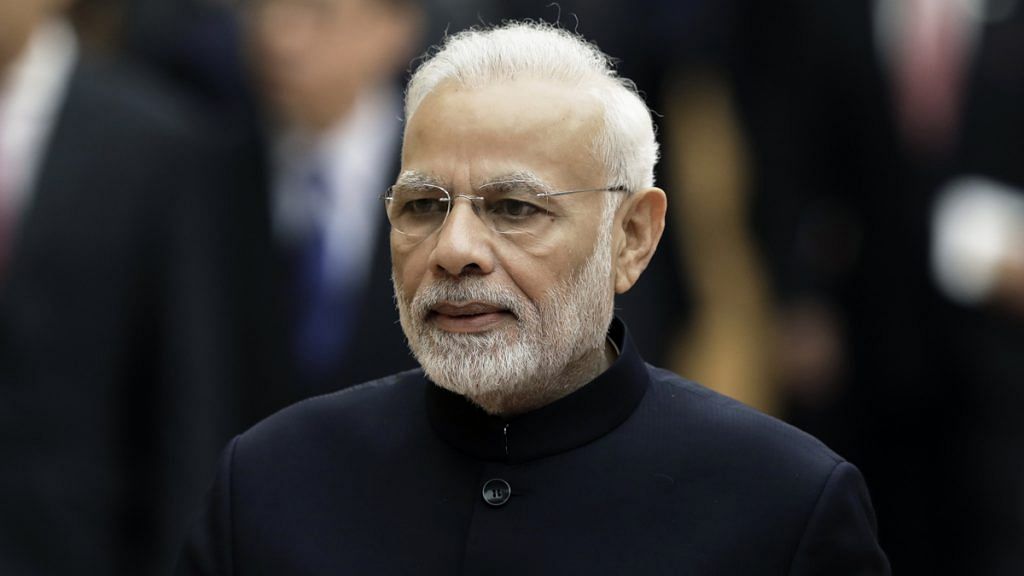New Delhi: When Time Magazine published its list of the 100 most influential people in the world last month, it made news in India for the three names that made it to the list – business leader Mukesh Ambani, and the public interest litigators behind decriminalisation of homosexuality in India, Arundhati Katju and Menaka Guruswamy.
What, however, has gone unnoticed is the fact that Prime Minister Narendra Modi failed to make it to the list for the second straight year. This, even as his counterpart across the border, Pakistani PM Imran Khan, entered the coveted list.
Modi, who emerged on the national political stage in 2013-14 has been on the list three times – in 2014, 2015 and 2017 – although the magazine’s editorial view of him shifted each time.
Modi through Time
When Modi first appeared on the list, an annual feature of the magazine since 2004, CNN journalist and noted global affairs commentator, Fareed Zakaria, wrote the brief on him.
Zakaria was both cautious and analytical.
“Modi has a reputation for quick action, encouraging the private sector, and good governance,” Zakaria wrote. “He also has a reputation for autocratic rule and a dark Hindu-nationalist streak.”
In 2015, Time’s choice for the Modi write-up reflected how most of the Western world was extremely upbeat about the future prospects of him as a world leader. Incumbent US President Barack Obama was chosen to write about the Indian prime minister.
“Determined to help more Indians follow in his (Modi’s) path, he’s laid out an ambitious vision to reduce extreme poverty, improve education, empower women and girls and unleash India’s true economic potential while confronting climate change,” Obama wrote.
The Prime Minister didn’t feature in the 2016 list.
The following year, Modi appeared on the Time 100 list but the magazine chose the author and a prominent critic of the Prime Minister, Pankaj Mishra, to write about him.
Mishra pulled no punches.
“In May 2014, long before Donald Trump seemed conceivable as a U.S. President, Narendra Modi became the Prime Minister of the world’s largest democracy,” Mishra wrote. “Nearly three years later, his vision of India’s economic, geopolitical and cultural supremacy is far from being realised, and his extended family of Hindu nationalists have taken to scapegoating secular and liberal intellectuals as well as poor Muslims. Yet Modi’s aura remains undimmed.”
It was the last occasion that Modi appeared on the list. He was not included in 2018 and 2019.
In stark contrast Chinese President Xi Jinping has been a part of the list every year since 2014.
How did Congress leaders fare at Time 100?
The Congress-led United Progressive Alliance (UPA) ruled over New Delhi between 2004 and 2014. In the 10-year period, former prime minister Manmohan Singh featured on the list twice: 2005 and 2010. Former Congress president Sonia Gandhi also featured twice — in 2007 and 2008.
Shashi Tharoor, who would soon go on to join the Congress party, wrote the brief on Sonia Gandhi in 2008. Talking about Gandhi’s entry into politics after the death of her husband and Congress leader Rajiv Gandhi, Tharoor wrote, “The queen retreats into silence and mourning until the insistent supplications of her courtiers compel her to emerge and once again take the destiny of the kingdom into her hands.”
Though there is no clarity on how Time’s editors decide the composition of the list, there seems to be a correlation between economic growth in the country and Indian leaders featuring on the list. The years when Indian GDP growth figures were significantly high, an Indian leader usually featured on the list.
The only exception to this seems to be former BJP Prime Minister Atal Bihari Vajpayee. He featured on the inaugural 2004 list, but the brief clearly stated that Vajpayee was being recognised for his peace efforts with Pakistan.
Also read: This is what has angered Narendra Modi this Lok Sabha election
